A new report from the International Council on Clean Transportation tracked air and water pollution from Singapore's bunker sector and urged a shift to renewable fuels. Using data from 2019, the study developed a methodology to identify where bunkering occurs and track the resulting pollution. Focussing on Singapore—the world's largest bunkering hub accounting for around a fifth of global marine fuel sales in 2019—the study found “residual marine fuel sales in Singapore leave a global air, water, and climate pollution footprint.” Highlighting the difficulty of tracking and assigning emissions from international shipping, the report said that if emissions from bunkers sold in Singapore were added to its national GHG emissions, the country's per-capita emissions would quadruple to be six times the world average.
Another report titled “Shipping's energy transition: strategic opportunities in Mexico” explores the potential for Mexico to accelerate and benefit from international maritime decarbonization. It was prepared by the P4G-Getting to Zero Coalition partnership which seeks to engage stakeholders and companies from three P4G partner countries -Indonesia, Mexico, and South Africa – with the aim to make zero-emission vessels and fuels a reality and identify concrete and actionable growth and business opportunities. With access to both the Pacific and Atlantic Oceans, well-established shipping routes, and trade relations to multiple continents, Mexico can, according to the new report, tap into new markets and establish itself as a global energy hub and provider of green zero-emission fuels. Realizing this potential can accelerate the transition to cleaner forms of energy across the wider economy, creating several opportunities for the country, the coalition said.
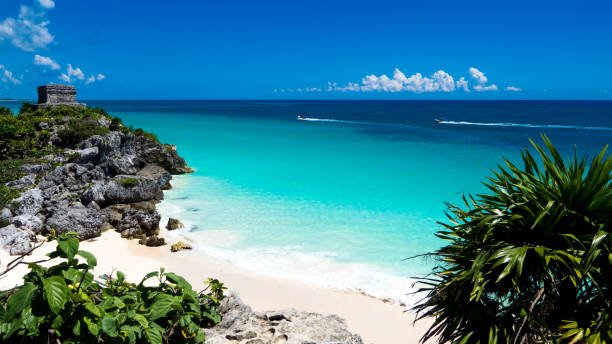
Alliances for Decarbonization
K Line, JGC, and JAPEX team up for joint CCS study in Malaysia: Japanese companies Kawasaki Kisen Kaisha (K Line), JGC Corporation, and Japan Petroleum Exploration (JAPEX) have signed a memorandum of understanding (MoU) on the joint study of carbon capture and storage (CCS) in Malaysia. Under the MoU, the parties will participate in the joint study that looks into suitable sites for CO2 storage in Malaysia and their technical evaluations. The joint study includes consideration of methods to capture and transport CO2 from the Petronas LNG complex located in Bintulu, Sarawak, and from outside Malaysia as a future possibility.
Reygar, Cedar Marine to help fleet operators reduce carbon emissions: UK-based maritime remote monitoring systems provider Reygar and compatriot carbon reduction and sustainability specialist Cedar Marine have teamed up to provide an integrated service for monitoring and reducing fuel, energy use, and carbon emissions across vessels and business operations in the maritime industry. The integrated service will utilize measured fuel consumption and emissions data from Reygar's fleet monitoring platform BareFLEET combined with additional information gathered by Cedar Marine on other aspects of a customer's operations. As part of the partnership, Cedar Marine will provide insights into specific measures a customer can take to reduce fuel and energy costs and emissions based on the data supplied by BareFLEET.
Iberdrola and BP partner up on green hydrogen production: Iberdrola and BP announced their intention to form a strategic collaboration to help accelerate the energy transition. Together, the companies intend to collaborate to develop large-scale green hydrogen production hubs in Spain, Portugal, and the UK. They also plan to produce derivatives such as green ammonia, and methanol, that can be potentially exported into Nothern Europe. This strategic collaboration will combine Iberdrola's track record in renewables development and its global customer base, with BP's experience in gas processing, trading, and its global customer portfolio.
The companies aim to jointly develop advantaged hydrogen production hubs in Spain, Portugal, and the UK, with a total capacity of up to 600 kilotonnes per year (ktpa), integrated with new renewable power.
Cepsa and Ohmium team up for green hydrogen projects in Iberian Peninsula: The companies will collaborate to develop and build initially small-scale projects aiming to develop a green hydrogen platform using Ohmium's modular PEM electrolyzer. There is also the possibility of providing Cepsa with up to 300 megawatts of installed hydrogen production capacity. Under the deal, the two companies will also work together on green hydrogen research and development initiatives. Cepsa's Positive Motion plan lays out the transition to a greener and more sustainable economy in the Iberian Peninsula. It includes the development of two gigawatts of green hydrogen production in Spain and Portugal by 2030.
Industry Actions
Wah Kwong explores carbon capture on bulkers: Hong Kong-based owner Wah Kwong Maritime Transport has teamed up with French class society Bureau Veritas and Shanghai Qiyao Environmental Technology Co., a subsidiary of Shanghai Marine Diesel Engine Research Institute, to study the feasibility of installing carbon capture and storage (CCS) units on existing ships to meet 2030 carbon intensity indicator (CII) targets. A cooperation agreement will see the three entities focus on two types of bulk carriers in operation in the Wah Kwong fleet.
Technomar to use RINACube to collect data on its environmental performance: Technomar Shipping has signed a contract with Italian certification and engineering company RINA for software licenses to employ the RINACube MRV-DCS-CII Data Collection and Reporting platform across 105 of its vessels. RINACube MRV-DCS-CII web application will be used on board each ship to collect the data required by EU MRV and IMO DCS regulations. Using the data collected, the software enables calculation and information pertaining to the current CII rating of the ships and a projection of the CII rating over the coming years. Technomar plans to use the information to foresee any potential issues and take timely corrective actions to maintain compliance with new environmental regulations.
Marubeni joins Blue Visby Consortium to reduce shipping emissions via digital solutions: Japanese conglomerate Marubeni Corporation is participating in the Blue Visby Consortium to support the development of an integrated system that notifies ships of the optimal date and time for arriving at their destination. The recently launched consortium is aimed at helping the shipping industry eliminate the wasteful practice of “Sail Fast, then Wait” (SFTW) through a collaborative platform. It is working on the development of the Blue Visby Solution that uses digital technology developed by software company NAPA to optimize the arrival time of oceangoing vessels and reduce their speed and CO2 emissions.
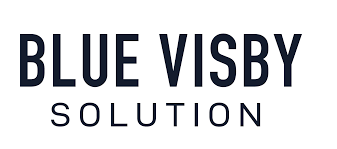
Next Generation of Vessels
Pasha Hawaii, Keppel AmFELS announce the delivery of first LNG-fuelled vessel to serve Hawaii: Honolulu-based transporter Pasha Hawaii and Texas-based shipyard Keppel AmFELS announced the delivery of the MV George III, the first LNG-fuelled vessel to fuel on the West Coast and the first to serve Hawaii. The 235-meters long LNG-fuelled containership is the first of two new ‘Ohana Class containerships to join Pasha Hawaii's fleet. It will be serving the Hawaii/Mainland trade lane. Energy efficiencies are also achieved with an engine, an optimized hull form, and an underwater propulsion system with a high-efficiency rudder and propeller.
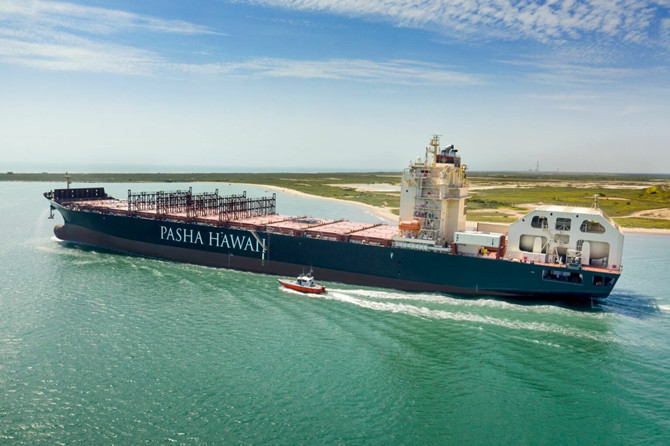 KNOT takes delivery of 1st LNG-fueled shuttle tanker for charter with Eni:
KNOT takes delivery of 1st LNG-fueled shuttle tanker for charter with Eni: Norway-based shuttle tankers owner and operator Knutsen NYK Offshore Tankers AS (KNOT), an affiliate of NYK, has taken delivery of its first dual-fuel liquefied natural gas (LNG) shuttle tanker to be chartered to Italian energy giant Eni. The vessel, named Frida Knutsen, was delivered on 2 August at South Korean shipyard Daewoo Shipbuilding & Marine Engineering (DSME). The shuttle tanker will be chartered to Eni’s subsidiary Eni Trade & Biofuels and will be engaged in oil transportation in the North Sea and the Barents Sea. According to KNOT, the vessel will be the company's first dual-fuel shuttle tanker that can use not only heavy fuel oil but also LNG.
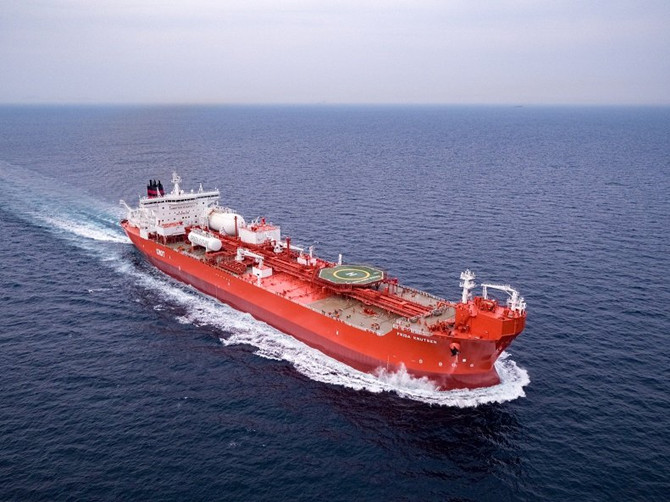
Frida Knutsen. Courtesy of NYK
Cosco and Dalian develop tankers with carbon capture tech: Dalian Shipbuilding Industry Co (DSIC), a subsidiary of China State Shipbuilding Corporation (CSSC), and Cosco Shipping Energy Transportation (CSET), the tanker operation unit of Cosco Shipping Group, have developed two types of tankers equipped with carbon capture and storage systems. The vessels’ conceptual design involved a very large crude carrier (VLCC) and a suezmax, which have obtained the approval in principle (AiP) independently issued by three classification societies: DNV, ABS, and China Classification Society (CCS).
Cruise
Fincantieri delivers NCL's 1st energy-efficient Prima-class cruise ship: Italian shipbuilder Fincantieri has delivered the next-generation energy-efficient cruise ship, Norwegian Prima, to Norwegian Cruise Line (NCL), a part of the US-based Norwegian Cruise Line Holdings. The vessel has been delivered today, 29 July, at Fincantieri's shipyard in Marghera, Venice. The Norwegian Prima is the first of six vessels in NCL's Prima-class of cruise ships, forming the backbone of the future NCL fleet. Deliveries of the six units are scheduled each year between 2022 and 2027.
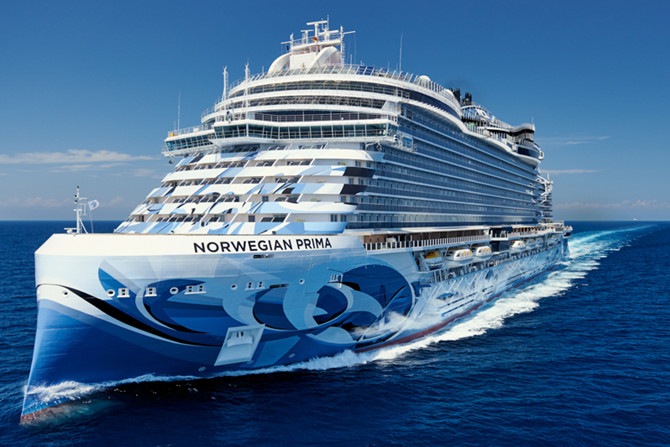
Norwegian Prima cruise ship. Source: Fincantieri's Twitter account
Technology
Smart Green Shipping wins funding for its wing sail tech: UK maritime tech firm Smart Green Shipping (SGS) has received a £5 million ($6 million) investment to develop and test fully automated, emission-reduction wing sail technology that can be retrofitted to merchant ships. The collaborative three-year program has been made possible by a £3.2 million investment from the private sector, which unlocked a further £1.8 million grant from Scottish Enterprise. The company will work on the project with partners including Malin, Drax, Peel Ports, and Lloyd's Register. They have already optimized the technology and design to ensure easy retrofitting and cargo access during port operations, according to Smart Green Shipping.
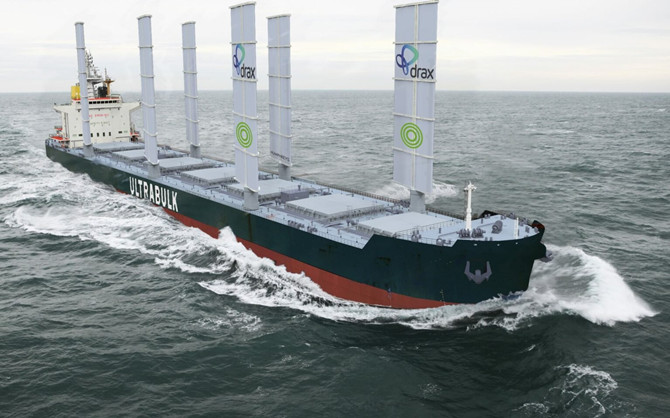
Courtesy of: Smart Green Shipping
GTT gets DNV approvals for liquefied hydrogen tech: Classification society DNV has awarded the French LNG containment specialist GTT two approvals in principle (AIP) for the design of a membrane-type containment system for liquefied hydrogen (LH2) and for the preliminary concept design of an LH2 carrier. These approvals are part of the agreement with Shell from February this year. They are to pave the way for the next stages of the project. Shell and GTT said they will work together to develop innovative technologies to enable the transportation of LH2, including a preliminary LH2 carrier design.
Rolls-Royce rolling out new mtu marine solutions on the road to net zero: London-based technology company Rolls-Royce is gearing up to present the new mtu marine solutions for propulsion, automation, and service as part of its ‘Net Zero at Power Systems' sustainability program. The mtu marine solutions, including diesel engines with exhaust gas treatment and gas engines and their use with sustainable fuels and hybrid systems, methanol engines, fuel cell systems, and mtu NautIQ marine automation products, will be showcased under the motto ‘Pioneering the journey to net zero’. The company will present the new solution at SMM, the international trade fair for the maritime industry, in Hamburg from 6 to 9 September 2022.
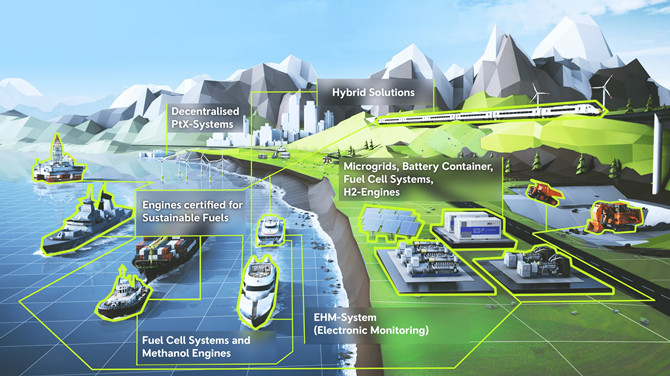
Alfa Laval buys a biofuel processing firm to reinforce its position in the renewables sector: Swedish sustainable solutions provider Alfa Laval has completed the acquisition of Belgium-based Desmet, a supplier of processing plants and technologies for edible oils and biofuel sectors. Announced in March this year, the acquisition is expected to strengthen Alfa Laval's position in the renewable energy sector and complement its offering within the edible oils market. By adding Desmet, the Swedish firm will gain support in its transformation towards renewable fuels and accelerate future innovations within biofuels as well as food and feed sectors.
Shell and Chevron invest in Aurora Hydrogen clean H2 tech: Aurora Hydrogen is developing a clean hydrogen production technology that uses microwave energy without generating any CO2 emissions or consuming water. Hydrogen production using Aurora's technology has the potential to reduce global CO2 emissions by over 900 million tonnes per year. The company has raised $10 million in Series A funding led by Energy Innovation Capital. Participating investors include Williams, Shell Ventures, Chevron Technology Ventures, and the George Kaiser Family Foundation. This funding adds to additional funding from the Natural Sciences and Engineering Research Council of Canada (NSERC) that the team received earlier this year.
Bureau Veritas okays HELION marine fuel cell system: High-power fuel cell manufacturer HELION Hydrogen Power has obtained approval in principle (AiP) from the classification society Bureau Veritas (BV) for its FC-Rack Marine, a zero-emission hydrogen-powered electric generator for maritime applications. The approval is said to be the result of a close collaboration between HELION and BV, aiming at deploying the safe use of hydrogen as an energy vector for propulsion and shore-to-ship power supply.
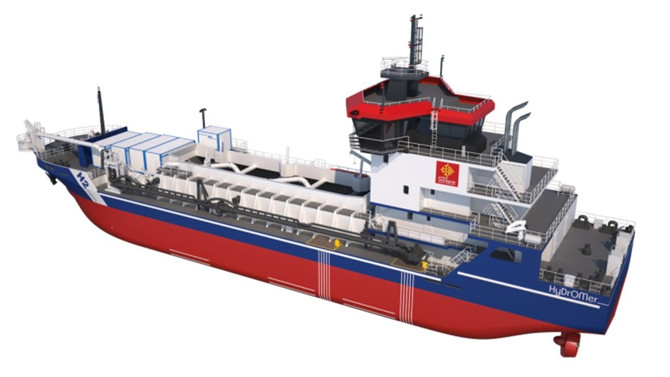
Fuels
Yara, Pilbara Ports Authority to assess ammonia as shipping fuel in WA: Yara Clean Ammonia (YCA), a global unit of Norwegian fertilizer company Yara International ASA, and Pilbara Ports Authority (PPA) have signed a collaboration agreement to jointly facilitate the uptake of clean ammonia as a marine fuel in the Pilbara region in Western Australia. The collaboration represents the commitment of both parties to ammonia as a zero-carbon fuel for decarbonizing the shipping industry. Under the agreement, YCA and PPA will jointly assess the potential ammonia demand and required bunker infrastructure, leveraging off the existing ammonia production facility of Yara Pilbara, and its clean ammonia potential in the region. The joint assessment is planned to take approximately one year.
MOL and NIES kick off a joint study on ship fuel: Japanese shipping major Mitsui O.S.K. Lines (MOL) and the country's National Institute for Environmental Studies (NIES) have launched a joint study on ship fuel to contribute to the safe operation of machinery on vessels. For this study, MOL and NIES will collaborate to conduct fuel quality analysis and research for the safe operation of machinery on vessels over a period of about three years. The aim of the study is also to develop a database of such results, which would help to predict environmental impacts in terms of different fuel quality and characteristics and reduce risks of oil leakage.
McDermott and KBR sign a global licensing deal for ammonia: U.S. offshore engineering and constructions services player McDermott and compatriot engineering firm KBR have entered into a global licensing agreement to provide integrated solutions for KBR's ammonia technologies. Ammonia produced from renewable or low-carbon sources, known as green and blue ammonia, supports global decarbonization. This is because it can be used to provide carbon-free fertilizers, as an energy carrier, or as a fuel. The new deal represents a solution to meet the growing ammonia market which combines KBR's technology with McDermott's execution capabilities and fabrication expertise. As part of the deal, McDermott and KBR will jointly evaluate opportunities to provide modularized execution concepts to drive additional efficiencies tailored to the needs of green and blue ammonia projects.
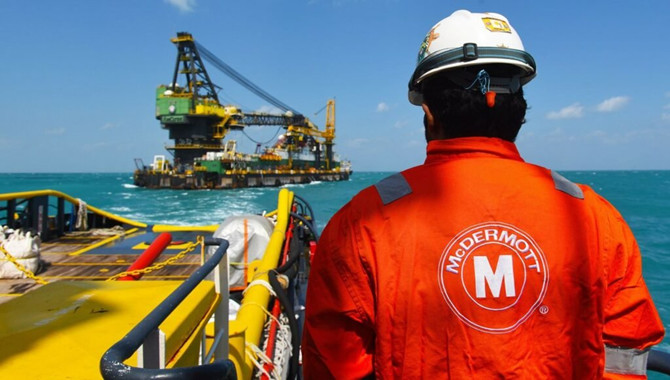
Biofuels
Spar Shipping bulker completes trial voyage powered by GoodFuels' sustainable biofuel: Dutch marine biofuels supplier GoodFuels, in collaboration with Norwegian dry-bulk tonnage provider Spar Shipping and Hong-Kong Based ship management firm Fleet Management Limited, has completed a 10-day trial of 100% sustainable marine biofuel on board bulk carrier Spar Lynx. According to the partners, the next-generation sustainable biofuel was derived from a variety of feedstocks certified as 100% waste or residue, including processed used cooking oil and animal waste fats. The trial was the first bio-bunkering undertaken by Spar Shipping and its ship management partner, Fleet Management Limited. As informed, during the trial voyage, Spar Lynx saw an 85% cut in sulphur oxides (SOx) emissions when compared to traditional fossil-based marine fuels.
NYK participates in marine biofuel data collection and analysis project aiming to establish transparency in biofuel supply chain: NYK and Astomos Energy Corporation have participated in a marine biofuel demonstration project launched by the Global Center for Maritime Decarbonisation (GCMD), a non-profit organization aiming to promote decarbonization of the maritime industry. Eighteen companies and organizations, including NYK and Astomos, are participating in this project, and demonstration trials will be conducted with an investment scale of approximately US$18 million. One of the objectives is to establish transparency in the biofuel supply chain with the use of tracer technologies, so this project is characterized by the participation of shipping companies as consumers.
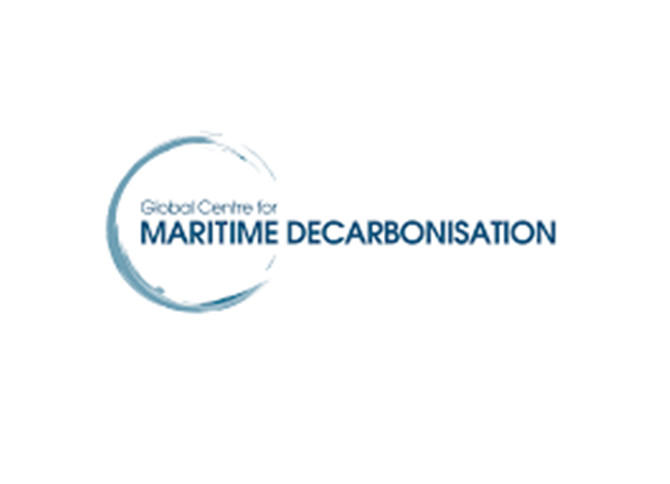
Ports
Singapore and Rotterdam to set up the world's longest Green Corridor: The MoU, signed on the sidelines of the biennial World Cities Summit, will bring together stakeholders across the supply chain to realize the first sustainable vessels sailing on the route by 2027. The two port authorities agreed to create a broad coalition of shippers, fuel suppliers, and other companies to work on potential solutions to address challenges relating to costs, availability, safety, and restrictions in the range of alternative fuels. The cooperation aims to facilitate the seamless movement of vessels and cargo and optimize the just-in-time arrival of vessels from port to port by creating a digital trade lane.
Port of Amsterdam, H2Ships project proceeds with hydrogen ship construction: Dutch shipbuilding company Next Generation Shipyards has been selected to construct a pilot ship for the H2Ships project which aims to develop an infrastructure for shipping using hydrogen propulsion. As disclosed, the shipyard was awarded the contract to build Neo Orbis, the hydrogen ship of the Port of Amsterdam, following a European tender process. The contract is said to be in line with the shipyard’s clean shipping vision to achieve emission-free shipping in the port by 2050. According to project partners, the Neo Orbis will be the first ship in the world to sail electrically, propelled with hydrogen in solid form as an energy carrier: sodium borohydride. The advantage of this hydrogen carrier is the high energy density and that it can be safely bunkered in many places, the developers explain.
Transnet seeks to introduce renewable energy at its ports: South Africa’s Transnet National Ports Authority (TNPA) is reaching out to the private sector for projects aimed at introducing renewable energy at its eight commercial ports. The Request for Information (RFI) issued at the end of July builds upon the results of an internal audit, which found that the port authority needed to stabilize its costs and energy supply and cut its greenhouse gas emissions. The port authority hopes the submitted projects would help it gain a better understanding of the renewable energy market, particularly for wind and solar. It is also considering incorporating other renewable energy sources such as hybrids of hydroelectric power, ocean energy, biomass, and geothermal.
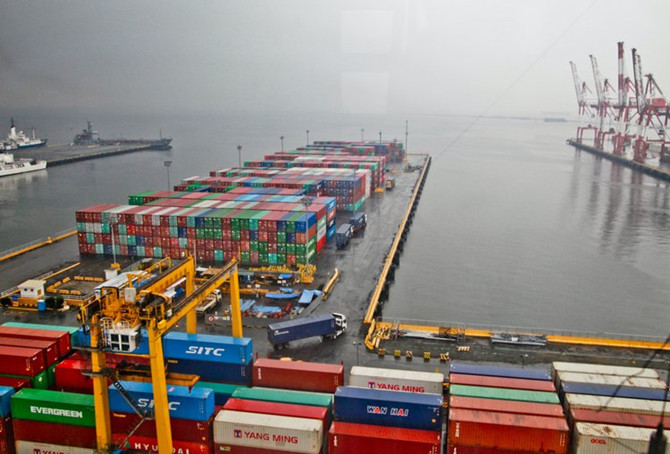
By Maria Bertzeletou, Breakwave Advisors
The opinions expressed herein are the author's and not necessarily those of The Xinde Marine News.
Please Contact Us at:
media@xindemarine.com












 Ningbo Containerized Freight Index Weekly Commentar
Ningbo Containerized Freight Index Weekly Commentar  Ningbo Containerized Freight Index Weekly Commentar
Ningbo Containerized Freight Index Weekly Commentar  Ningbo Containerized Freight Index Weekly Commentar
Ningbo Containerized Freight Index Weekly Commentar  BIMCO Shipping Number of the Week: Bulker newbuildi
BIMCO Shipping Number of the Week: Bulker newbuildi  Ningbo Containerized Freight Index Weekly Commentar
Ningbo Containerized Freight Index Weekly Commentar  Ningbo Containerized Freight Index Weekly Commentar
Ningbo Containerized Freight Index Weekly Commentar